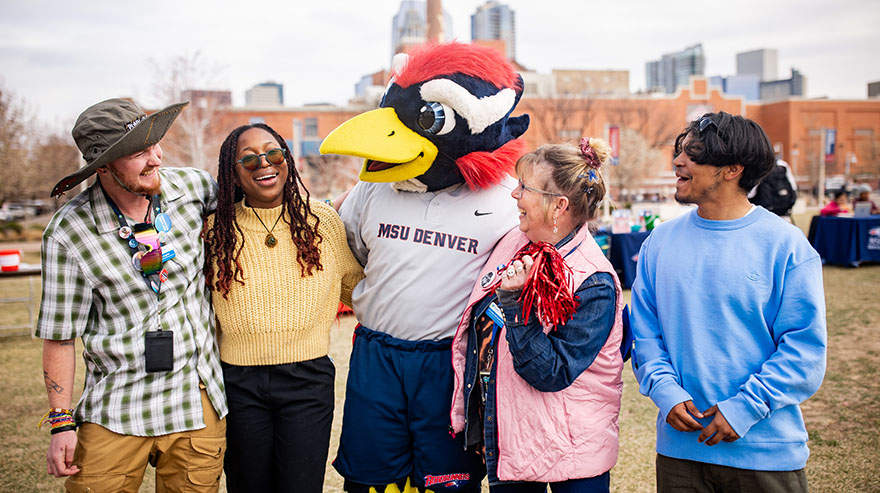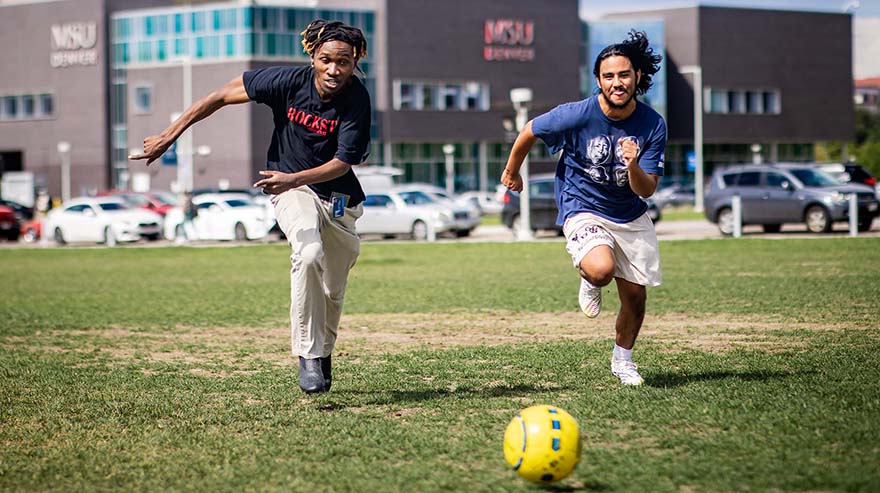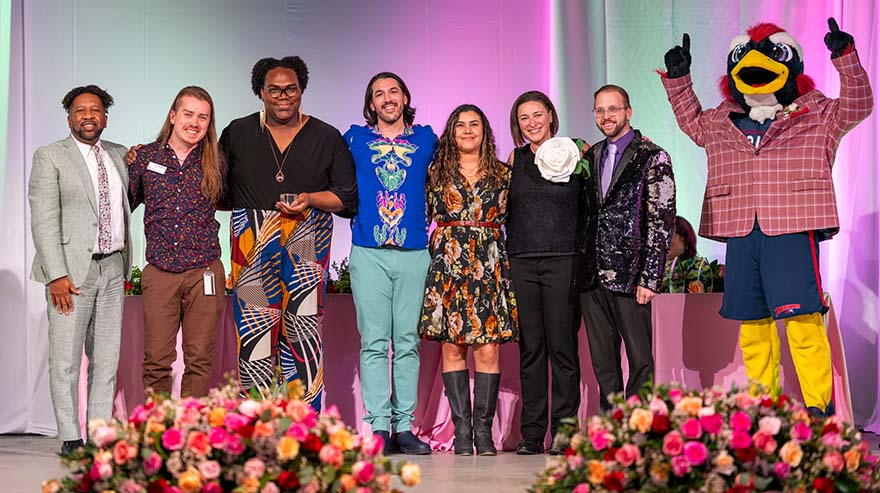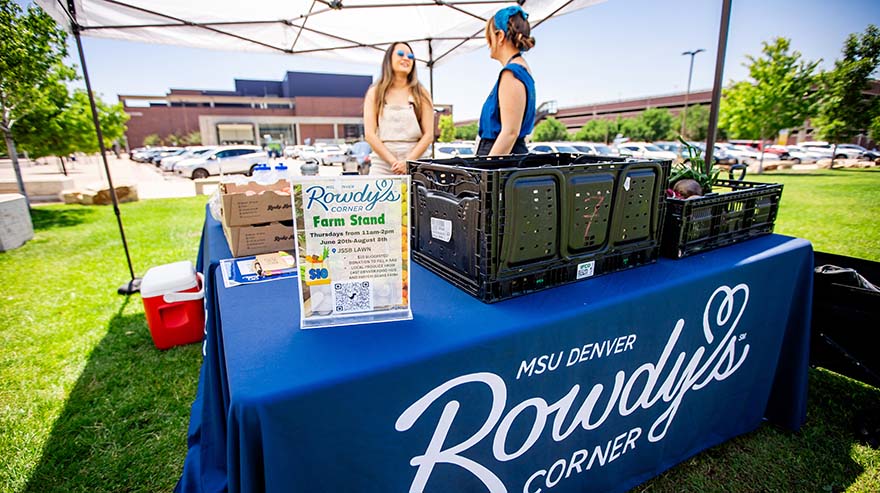At age 5, Loung Ung packed whatever she could carry and set out on foot with her family for a distant relative’s home in the country. She would never return to her home in Cambodia’s capital city of Phnom Penh. She and her family were fleeing the Khmer Rouge regime, but at every turn t he regime’s army would be one step ahead, serving up fresh displays of unspeakable brutality.
he regime’s army would be one step ahead, serving up fresh displays of unspeakable brutality.
This story is the basis for Ung’s bestselling, award-winning memoir “First They Killed My Father,” this year’s selection for Metropolitan State University of Denver’s 16th annual 1 Book/1 Project/2 Transform program. Ung will visit campus for a keynote discussion April 2.
The Early Bird spoke with Shayla Bischoff, assistant to the associate vice president for Undergraduate Studies and 1 Book co-chair, and Judith Lynn Strathearn, Ph.D., lecturer in Gender, Women’s and Sexualities Studies and 1 Book faculty co-chair, to learn about this year’s book selection and how the MSU Denver community can get involved.
Can you share a little about the 1 Book program and why it’s important?
SB: The originators, Randi Smith and, later, Lunden McDonald, had this idea of turning the reading program into a community-centered series of events. The last three years, we’ve seen an increase in engagement from not just students but faculty and staff members as well. I know the Justice, Equity, Diversity and Inclusion Committee for the Staff Senate read the last book (“All Boys Aren’t Blue” by George M. Johnson) as part of their book club and then came to the keynote to get their books signed alongside students, which really builds community on campus.
JLS: I think this program is incredibly important because as faculty, we can be isolated in the spaces and the topics that we teach. The great thing about the books that are chosen is that they can connect departments that might not be connected any other way.
How was this year’s book chosen?
SB: Each year, we send a survey to keynote attendees for the previous year. Those surveyed last year expressed interest in immigration, colonization, indigeneity and homelessness. We saw a lot of these subtopics within “First They Killed My Father,” and then, considering world events happening right now in Africa, Asia, the Middle East, the topic of war has been front-of-mind. So we thought this was a good time to uplift this author.
What do you think readers will enjoy about this book?
JLS: I think folks will enjoy the releasing of pain and trauma that the author does in the book — and the resilience and humanity that come along with that. Too often, we forget that people have so many traumas that we don’t see. I think people will enjoy seeing how the author not necessarily forgets, and perhaps not even forgives, but moves forward with her life with that trauma as part of her.
SB: Stories like this should be read and spoken about, even if they’re hard, because it’s important for history to not repeat itself.
The book was adapted into a film directed by Angelina Jolie in 2017. How do you think the film will enhance the reader’s experience of the book?
SB: I want to note that Ung co-produced the film, so she worked alongside Jolie to make it pretty accurate, which I think is exciting. Authors aren’t often given that seat to make their books come alive. For people who have a hard time visualizing these places and locations, this is a really good opportunity to engage even deeper with the content.
JLS: I also think the film adds the idea of adaptations to the conversation. What was left in; what was left out? The fact that the author was side by side with the production will lead to very interesting discussions.
Ung will be visiting campus April 2 for the keynote. What other events are you planning for the year?
SB: The keynote used to be in early November. We’re really excited to move it to April to give readers more time, and we’re also adding roundtable discussions for more opportunities to discuss the content with Ung outside of just her keynote.
JLS: We’re also looking at holding a cooking class around Cambodian food, as well as a film screening and some other panel events that will give folks a chance to talk about war and traumas of war. We’re putting together a faculty panel for October that will discuss the teaching-and-learning guide and how faculty members can incorporate this into their courses for the spring.
Can you share a little more about the teaching guide and how faculty members can get a copy?
JLS: Annie Butler in Human Services and Bora Jeong in Political Science are working on this year’s guide. Having used the previous teaching-and-learning guide to help shape the class that I taught, I will say that these guides are just the most beneficial resource possible. It includes lots of activities to support teaching the book and breaks down chapters and how to work with them.
SB: As soon as it’s ready, we’ll send it out in an all-faculty email and we’ll have it linked on our website.
What are you most excited about for this year’s program?
SB: I know Judy mentioned the cooking class, but I think that’s going to be so much fun. It’s a break from the more serious topic but also a reminder that underneath this pain and war and trauma that impacted the people in Cambodia, there’s still a vibrant, beautiful culture. And it gives time to celebrate that, and we really, really hope that our Cambodian community members outside of MSU Denver will come and be a part of this too.
How can MSU Denver students and faculty, staff and community members get free copies of the book?
SB: We have a form that’s linked on our website to request books. You can request a copy right now. Now, if you’re not on campus, you do have to come pick them up from my office in the Jordan Student Success Building. Otherwise, I can arrange to have them delivered to your office. We’ll also have a limited supply of e-reader and audio copies available if people need them.
How else can people get involved? Are there volunteer opportunities?
SB: I would love for people to volunteer for events, including facilitating reading clubs for students. Just send an email to [email protected] to get involved.
Is there anything else that you want people to know?
SB: Don’t be afraid of this book. I definitely had an emotional reaction to it, and I’d say tissues are required, but it’s worth the read.
JLS: Sometimes, reading is so solitary; this program gives you the opportunity to create a community. You can dive into the book, and then you can have folks to talk it over with because the material is definitely something you’ll have to process. 1 Book is a community for that.







